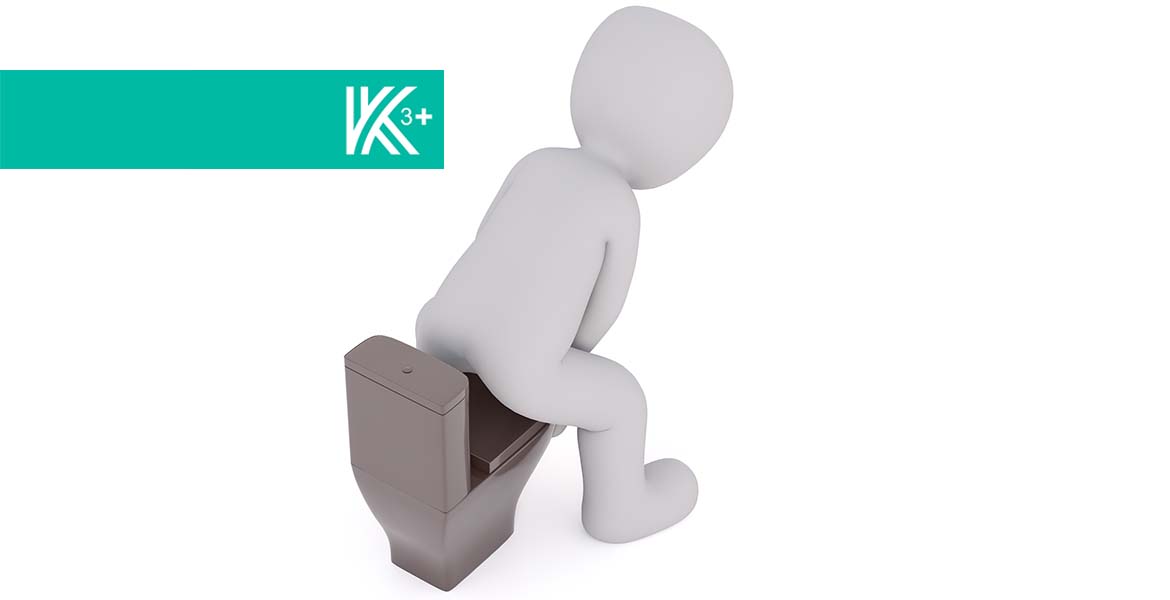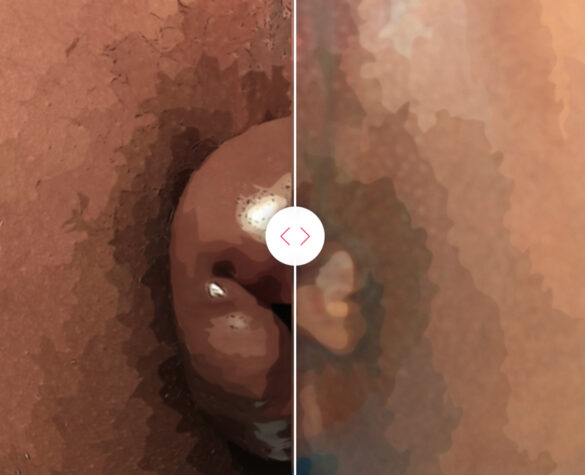Constipation



What is Constipation?
Constipation is a common ailment that affects people of all ages and can be treated at home, often through simple adjustments to the patient’s diet and lifestyle. Below are more details on constipation in adults.
Signs of constipation
You can often tell if you are constipated if you experience any of the following:
- No defecation, the maximum number of times per week, which is three times.
- If all or most of your stool is large, dry, hard, or lumpy.
- Experiencing straining or pain when passing stool.
Causes of constipation
Constipation in adults, the most common causes are the following:
- Not eating enough fiber (fruits, vegetables, grains …)
- Not drinking enough fluids
- Spending long periods of sitting or lying and lack of movement
- Lack of exercise and sports exercises
- Postponing and ignoring the urge to pass stool more frequently
- Diet change
- Change the daily routine
- Take medication that has side effects
- Having some psychological problems, tension, anxiety or depression
- Ensure that there is no anal disease (hemorrhoids, hemorrhoids, anal fissures, tumors …).
- Pregnancy and up to 6 months after birth.
- Sometimes a specific cause of constipation cannot be identified
Medical and health conditions that cause constipation
Here are a number of medical and health conditions that can cause constipation:
- Endocrine problems, such as hypothyroidism or hypothyroidism, diabetes and hypercalcemia
- Colon and rectal cancer
- Irritable bowel syndrome
- Rotuj disease
- Problems with working and coordinating the work of the pelvic floor muscles.
- Neurological problems such as: spinal cord injury, multiple sclerosis (MS), Parkinson’s D, and stroke.
- Lazy bowel syndrome. Due to this syndrome, the colon drastically shrinks and stools are kept inside.
- Intestinal obstruction
- The presence of defects of a structural nature in the digestive system (fistula, colic atresia, volvulus, intussusception, non-perforated anus, or poor roundness).
- Pregnancy
- Take strong pain medications that contain narcotics such as codeine and oxycodone.
- Take non-steroidal anti-inflammatory drugs such as naproxen.
- Taking antidepressant medications such as a selective serotonin reuptake inhibitor (SSRI) such as fluoxetine Prozac and a tricyclic antidepressant such as amitriptyline.
- Take antacid medications that include calcium or aluminum.
- Take iron pills.
- Take allergy medications such as antihistamines, such as diphenhydramine
- Taking some blood pressure medications such as beta-blockers such as atenolol and calcium channel blockers such as verapamil, diltiazem and nifedipine
- Take psychotropic medications, such as clozapine and olanzapine (Ziprexa).
- Take certain anticonvulsant medications, such as phenytoin and gabapentin.
- Take some anti-nausea medications, such as ondansetron (Zofran).
Constipation harms
The following are complications and internal damage that occurs if your bowel movement is not smooth and regular, and these complications include:
- Hemorrhoids (swollen and inflamed veins in the rectum).
- An anal fissure (a crack in the lining of the anus as a result of passing large, hard stools).
- Diverticulitis (infection of the colon wall pockets due to infected and trapped stools)
- Fecal impaction (accumulation of large amounts of stool in the rectum and anus)
- Stress incontinence (loss of bladder control due to damage to the pelvic floor muscles due to straining to move and compress the intestine. Urine leaks from the bladder).



Constipation may be the cause of a number of anal diseases
Diagnose constipation
First: the complete pathological story
It is very important and useful for the doctor to obtain the largest amount of information and details about the disease, its conditions, history and symptoms, and for this the doctor raises a number of questions, and following an important number of these questions related directly or indirectly to the disease of constipation :
- What are the current and past illnesses or health conditions that you have suffered from?
- Did you gain or lose weight recently?
- Have you had surgery in your digestive system previously?
- Do you take medications or nutritional supplements, either to relieve constipation or to treat any other illness?
- Who in your family suffers from constipation or colon cancer? The degree of kinship and what are the circumstances of his illness
- Have you ever had a colonoscopy?
Second: the complete pathological story
This is to find out information about the patient’s history of the onset of abnormal bowel movements, by asking the patient more detailed questions, some of them:
- How often do your bowels move per day or per week?
- What does the shape and color of your stools look like?
- Have you seen blood or red streaks on your stools?
- Have you seen blood inside the toilet or on the toilet paper while it is being used?
Third: Understanding the patient’s lifestyle
It is useful for the doctor to know the patient’s habits and his daily, healthy, movement and dietary lifestyle, by asking questions about sporting and nutritional habits to collect the largest amount of relevant information, following a number of these questions:
- What foods and drinks do you routinely consume?
- What’s your exercise routine?
Fourth: the physical examination
- The doctor uses his stethoscope to listen for sounds in your abdomen and will touch your abdomen to check for pain and any lumps or lumps.
- The doctor will conduct a rectal examination. This includes a finger exam of the inside of the rectum. It is a quick examination to discover lumps or any problems that can be felt with the finger and the doctor can distinguish them.
- Routine vital signs examination when visiting a doctor sometimes gives important information and these measurements include:
- Temperature
- Pulse
- Blood pressure
Fifth: laboratory tests and imaging departments
Below is a list of a number of types of tests conducted by specialized clinics related to constipation, which are taken care of according to the situation for each patient.
Lab tests
These tests reveal any signs of hypothyroidism, anemia, and diabetes, and a stool sample will reveal any signs of infection, inflammation and cancer. Tests include:
- Blood sample
- Urine sample
- Stool sample
Imaging tests
Computerized tomography (CT) testing may be helpful for some conditions
Magnetic resonance imaging (MRI)
MRI is useful for identifying other problems that may be causing your constipation.
Colonoscopy
This colonoscopy, or what is called sigmoidoscopy, uses an endoscope to take an internal view of the colon, and through it, a tissue biopsy can be taken to make an examination to ensure that there are no cancer and other diseases, and a number of polyps are removed if they are found.
Colon and rectal crossing studies
This study is based on the patient eating (swallowing) a radioactive substance, then observing the material on its way to the anus through the digestive system, and measuring the time spent in each stage and how it is transmitted.
Other bowel function tests
Sometimes, depending on the case, the doctor requests an examination to know the quality of the opening and closing of the anus and the ability of the rectum to stabilize and secrete stool. Among these tests:
X-rays of the stool are important to rule out any abnormalities in the stool
Balloon test to measure anal pressure, in which a balloon is inserted into the rectum, inflated and muscle pressure measured on it
Constipation Treatment
The treatment of constipation is done at different levels, some of which are in the clinic and some at home. Here are its details
Treating self-constipation
Treating many cases of mild to moderate constipation can be done at home. There are a number of recommendations to help relieve constipation:
- Drink 2 to 4 more glasses of water daily, especially during the morning.
- Adopt a diet that contains high amounts of fiber. 20 to 30 grams of fiber per day.
- Eat less high-fat foods, such as meat, eggs and cheese.
- Eat peaches and / or bran.
- Write down foods that reduce constipation so that they will be less frequent and foods that increase constipation
- Exercise and move around more
- Notice how you sit on the toilet, and know that elevating feet, leaning back, or squatting may make having a bowel movement and defecation easier.
- Add over-the-counter supplement fiber to your diet
- Take laxatives, but not for more than two weeks, without calling your doctor. Because excessive laxatives may worsen symptoms.
- Do not read or browse your phone while sitting in the bathroom.
Drug treatment
Popular constipation medications such as Duphalac, Docolax, Movicol, Fiblax and others
Medication treatment with home remedies, the doctor will review it with you and any nutritional supplements you take, because some of them may cause constipation, so everything you take daily must be explained to the doctor, as the doctor may ask you to increase or reduce the intake of certain substances or nutritional supplements.
Remember not to stop taking any medication without consulting your doctor
Surgical treatment
Rarely, surgery is necessary to treat constipation. However, your doctor may recommend surgery if the constipation is caused by a structural problem in the colon. Examples of these problems include a colon obstruction (intestinal obstruction), narrowing of part of the intestine (intestinal stricture), a tear in the anus (anal fissure), or the collapse of part of the rectum into the vagina (rectal prolapse). Some causes of constipation can be treated with an outlet defect with surgery. This is best discussed after the test. You may also need surgery if cancer is found in the colon, rectum, or anus.
Prevention of constipation
How can I prevent constipation?
- Adopt a diet with high amounts of fiber. 20 to 30 grams of fiber per day.
- All foods include nutritional information written on them, so it is important to read them, and be aware that there is an amount of dietary fiber supplement and the amount of fiber in each of them. The amount of fiber in your diet should be slowly increased so that the stomach does not upset.
- Drinks
- Drink eight 8-ounce glasses of water daily.
- Milk can cause constipation in some people
- Caffeinated beverages, such as coffee and soft drinks, can be dehydrating. These drinks can be stopped until the intestines return to normal
- Exercise regularly.
- Treat mild constipation with magnesium, available as a supplement. Consult your doctor before this, as magnesium may not be suitable for everyone.
What degrees of constipation need to see a doctor?
- If constipation is a new problem.
- If you see blood in the stool.
- You lost weight unexpectedly.
- If you feel severe pain with bowel movements (during bowel movements)
- If constipation lasts more than 3 weeks.
- If there is a defect in the outlet constipation
Constipation FAQs
I have severe constipation and cramps and I could not pass a stool, although I already had a bowel movement this morning. Is there any advice?
I have severe constipation which feels large and cannot come out without hurting me, what should I do?
I have been constipated for about two weeks, and it is not very severe, but I noticed that the bulk of the material for stool has a different shape, meaning that it is closer to very hard and sticky balls. Is this an indication of a disease?
My son (4 years old) has had constipation for 3 days, and when pressing down on his stomach, I noticed a very hard stool mass. Should I give him a softening suppository or make him eat peaches?
Constipation Cases
Patients who previously lived suffering from hemorrhoids, fistulas, and hair bags, and received treatment by Dr. Khaldoun. We list the symptoms they suffered and the treatment that was provided, which could be useful for you.




